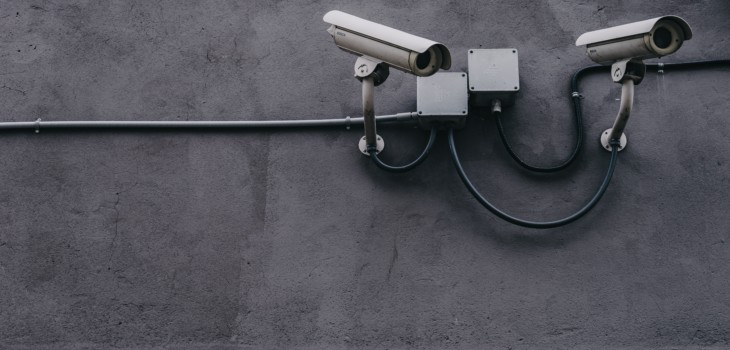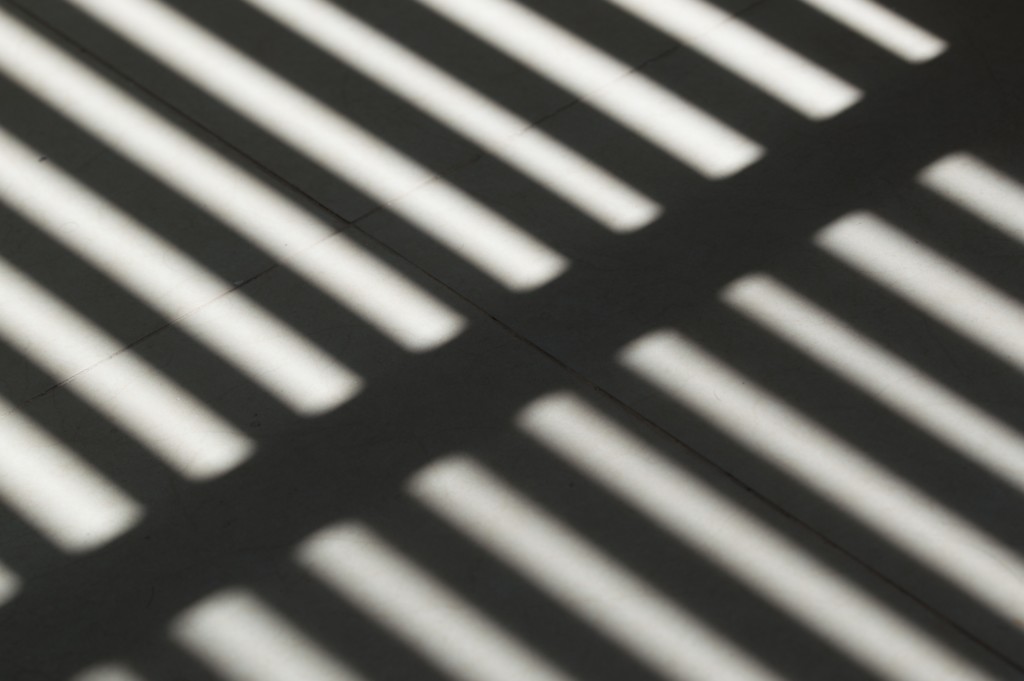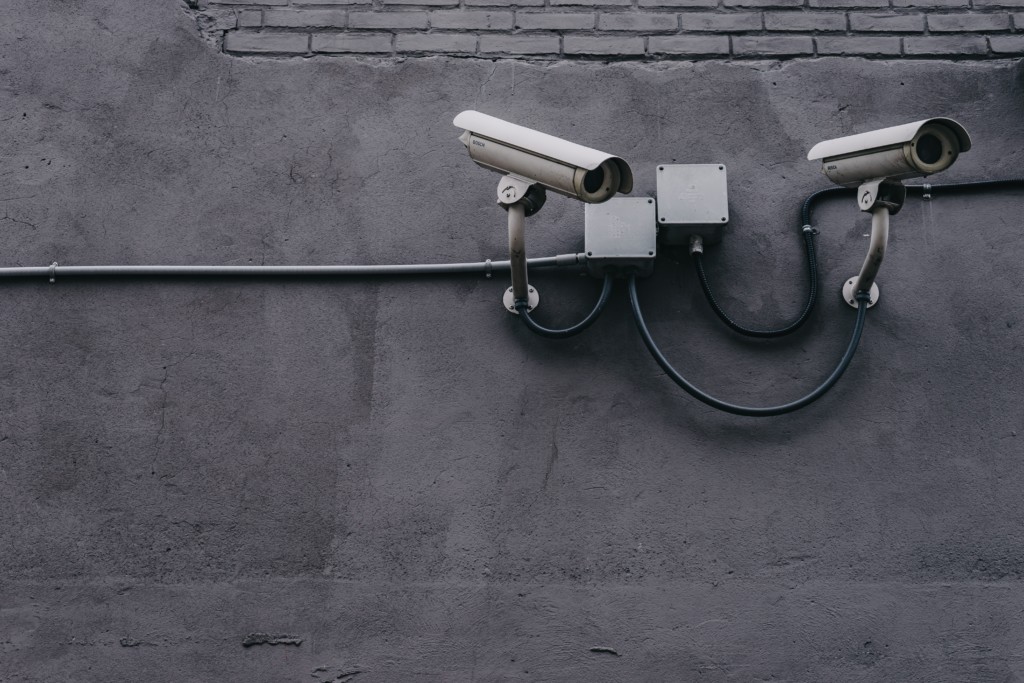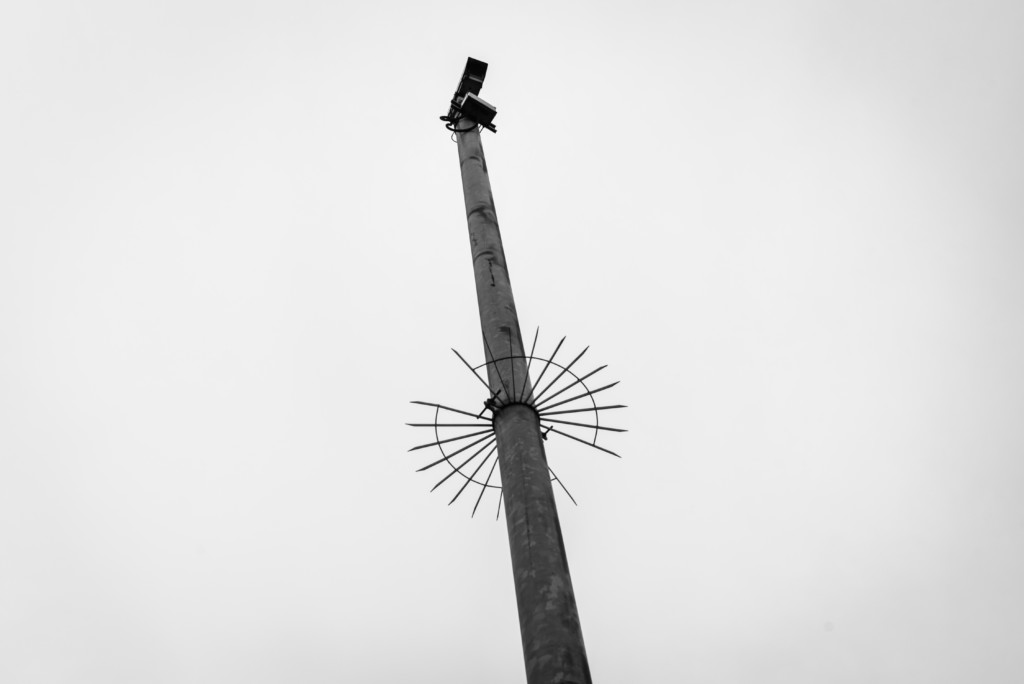Inside Britain’s Close Supervision Centres: Prisons within prisons

Corporate Watch recently interviewed ex-prisoner Kyle Major about his experiences in Close Supervision Centres (CSCs). These are Britain’s highest security prisons and have been described by prisoners as ‘torture units’. We offer a large appreciation to Kyle for his time in sharing these traumatic memories. Please note this interview contains references to self-harm, violence and sexual abuse.
What is a Close Supervision Centre?
CSCs are basically units where they put people who have encountered a problem or have certain issues, or they have been involved in an incident or altercation with another prisoner – it could be anything. I just feel as though they put people there to abuse them and keep them contained. They are not trying to help anyone. There are just hostilities day after day.
Can you describe what it looks like?
The maximum it takes is ten people but they only keep around six to eight at one time. It’s like a triangular shape with cells all on one side. Five of them are high control cells where they feed you through the hatch. It is a very closed-off environment. It’s a prison within a prison. It’s not a nice place.
What is the daily regime like?
I was put on the unit literally when I got there, when I first arrived in 2010. I had no association [time outside in the yard], I didn’t mix with any other prisoner and I was kept fully isolated. This is when I started talking to Kevan [Kevan Thakrar, a well-known CSC prisoner who has been agitating against the system for the last eight years]. I was talking to Kevan through the window and I was explaining to him about what was going on and he said look you need to put in a “Comp 1” [complaint form] and send it to the ombudsman. I followed the process and sent it to the ombudsman and then they started giving me a regime.
You don’t mix so it’s complete isolation. The talk about “risk assessments” but that’s just bullshit, they just use the word risk assessment to justify what they are doing.
Are you unlocked at all during the day?
It’s basically segregation. Staff will come round to your door at 8 o’clock. They will say “Right, what would you like today?”. If you don’t say “please”, you don’t get any apps [applications for what you need]. I’m a polite person, generally polite to everybody. And if I forget to say please or thank you (which is rare), and you say to me “oh you’re not having a shower unless you say please”, that there is wrong. These are the sort of things you are dealing with at 8 o’clock in the morning. They could just open the door and say what do you want, tick … But they don’t want that. They want to go back and forth until it gets you to a stage where you are feeling agitated or a bit frustrated with the situation.
You can put down for a shower, exercise, CV room or phone call… but you’re not guaranteed to get it. They might say “restricted regime today, you’re not getting no apps”, and you’re just locked up 24 hours.
Did that happen a lot?
A lot! You could be waiting for the phone and they’d say sorry we can’t get you out for the phone and they’d say “we’ll get you out, later on, we’re just busy at the moment”. Then it just continues all the time.
I tried my best to not let anything try and affect me. I was trying to keep it strong and not let them see that it was pissing me off. When they see that it kind of gets you angry it drives them to do it more.
Do you think they are purposely trying to wind people up?
100%. They were out every single day provoking violence from myself, and from Kevan and others. They’ll put certain officers onto certain people so that for instance, if they know that you’re going to put a complaint in or you’re that kind of guy that will follow the right process, they will get one of their colleagues who has a clean history to target you. I’m not saying they are all corrupt because there are some genuine people down there. They have upheld some of my complaints so I can’t discredit them for that. But it’s about your character. They are working behind the scenes.
For instance, I just got a letter from the ombudsman yesterday. They went into a bit of detail about what evidence they have. This officer attacked me in Lindholme in August 2017, unprovoked, on camera, arms by my side, two prisoners stood by and witnessed it. Come to my windpipe and my chest. No reason. On camera I’m saying “why are you treating me this way”. This officer has been in the job 27 years. His history sheet is clean. He’s got no problems in his history and then all of a sudden I’m attacked.
I’ve got a police investigation that collated all the evidence and sent it to a senior officer in a local police station for a charging decision. Now the policy is that any criminal matter has to go to the CPS [Crown Prosecution Service]. Mine didn’t. The police took the decision not to charge, saying that the prison officer acted in self defence. So again they are trying to protect the officer. There is no aggressive body language, no threatening behaviour and they can attack you and just get away with it. They just don’t want him to lose 27 years of work that he has put in. He’s coming up for his pension. He’s probably thought he could provoke me to attack him so he can come off with an early pension or something.
I don’t know, it’s just the way these people operate. It can be really psychologically calculated, tactical targeting and abuse.

So a lot of people who might be reading this have never been in prison. Maybe they see something on the news about violence in prison but can’t imagine officers doing certain things. Can you maybe talk about what you have experienced in terms of violence from some officers?
In total, throughout my life, I have been to 32 institutions. I have been to five high-security prisons, and three CSC units. The majority of the prisons in the country are based on abuse, the officers abuse their positions, they target you, they’re bullies. They operate in groups and gangs and they are not professional. They are coming to work drunk looking to beat prisoners up. Some really bad stuff, you know. What people read in the media is very watered down and that is only a select few prisons.
So, we’re obviously interviewing you and you’re in a wheelchair right now. Can you say a little bit about what has happened to you?
I came into prison in November 2016. I had several hospital appointments outstanding when I came into prison. I had a bad ankle and foot from an attack in 2014. Because I hadn’t had any treatment since 2014, my leg has been deteriorating to such a degree that I can’t walk. I’m literally having to drag my leg and they’re taking pleasure in it, the officers. I’m in HMP Woodhill at this point, November to December 2016.
I was going to the segregation [unit]. I explained I could only walk a short distance aided with a crutch and long-term I had to use a wheelchair for mobility. I was told “no, you can walk” . I said I need to speak to healthcare, then before I could say another word literally six officers attacked me. They dragged me out of the wheelchair, smashing my head on the floor, then kneeing me and punching me. At no point was I resisting. I was picked up in mid air above their heads and carried to the segregation and put in a cell. Around ten minutes later four different officers came into the cell, not small guys.
They surrounded me and said “we want your trainers”. Before I could even finish asking for healthcare again they assaulted me again, punching and kneeing me. One officer tried to break my back with some UFC body slam. I was then stripped naked and they left the cell.
I was in a cell with no toilet, sink or bed, just four walls and a floor. I went to the corner of the cell to empty my bowels. Whilst in the corner, naked and knelt down, the officers tried to come back into the cell again. So I threatened them so they would leave the cell, genuinely in fear for my life.
After ten minutes or so five officers came running through the cell door without warning with a (shield and helmets) into an empty cell with no movable objects and just a naked man. They rammed me into the corner and beat me severely. That’s three assaults in one hour. A human body is not designed to take that much trauma.
“A human body is not designed to take that much trauma.”
Five days later when all the bruising and swelling went down I was taken to Harrogate district hospital where I was told my ribs were fractured and my shoulder was broken, with further trauma to my back, foot and ankle leaving me unable to walk and in a lot of pain. All the prison staff did was provoke and abuse me.
There is a policy the prison service operates by. It’s a new PSO/PSI [Prison service order or instruction] called Adult Safeguarding in prisons. In this document, it goes into detail about what are classified as certain offences. Every single thing in that document is what they use as tools to target people. For instance, if I feel secure within myself and I’m happy with who I am, you’ll get people trying to make you feel insecure.
How will they do that?
Okay, so they’ll stare at your private parts. They’ll stare at them deliberately so you can see it. There is a lot: staring, talking down to you, psychologically trying to play games. It’s very deep. They’re sat in meetings, probably two to three a week, with all the CSC staff, governors and senior psychologists talking about psychological tactics to test you or ways to provoke you. It is very deep.
What function do you think the CSC serves in the wider prison system?
I think they are using it as a way to get more money from the government.
When I went into the CSC system, I believe there were only about 45 people at a time in the whole system. There were only two units, Woodhill and Whitemoor. Then they opened up the Manchester one. Full Sutton hadn’t been opened. I think they did it just because the government gives the prison service so much money for prisoners who are on CSC. In the normal population of prisoners, you get maybe £40 to £50 grand a year max per prisoner. Somebody on CSC, the last time I knew I believe it was over £100,000 for one prisoner. If you’re getting £100,000 for one prisoner then all of a sudden this system starts to grow.
“If you’re getting £100,000 for one prisoner then all of a sudden this system starts to grow.”
People such as myself and Kevan and various other people are cash cows for these people. They pick people who fit certain criteria: he’s got certain paperwork from history and what not, he fits the bill. That’s what I feel. They just see us as a way to get more money, a regular paycheck for the unit.

Does the mental health of people change from when they go into the CSC and when they leave? Or what happens to people when they go there?
I witnessed people with mental health issues being provoked into self-harming, committing suicide. One example, a guy who was very unwell. He was in for a heinous crime. Everyone has their problems. I didn’t talk to him much. One day he was in a high control cell, where they watch you through a glass door. So you’ve got the officers sat outside the door and him inside. He literally comes to the door and he was smashing his head off the door and the officers are sat there laughing at him.
“He literally comes to the door and he was smashing his head off the door and the officers are sat there laughing at him.”
Another person started going through a period where his mental health was deteriorating. He was telling them [the officers] he was hearing voices and genuinely suffering. They didn’t give any help. One morning I’m in the yard, I’ve seen him come out of his cell and he has two black eyes. I’ve waved him over to the window and asked him what’s going on. He said he punched his eyes out last night. He blacked both his eyes. He said he didn’t have any control over himself. As he walked off from the window, he went to the shower area. He asked for a razor. He’s gone into the shower and just cut his ear off. Chucked it in the sink. The officers were laughing at him and making fun of him.
Three months later, he’s gone out to a hospital, had treatment, come back in. They’d been kind of easing off him. Back in the unit, the abuse started again. They give him another razor and he cuts his other ear off.
Another person was in the cell next to me. I hadn’t got a TV, so it’s quiet, and because the unit is kind of small you can hear what is going on. They were provoking him and provoking him. He smashed his TV and stuck it in his arm. Literally inside and ripped it down. Opened his full arm up. It wasn’t self-harm it was mutilation. Again, came back from the hospital. In response to him mutilating his arm, they sent him to the worst segregation unit at HMP Frankland. The officers at Frankland Seg are going to be the worst officers you come across in your time. They are really sick horrible people. I was in that seg just under three months and I come to a stage at the end of the three months where I had to stay in my cell 24 hours a day. I couldn’t come out for a shower or exercise. I had to stay in my cell because every time they opened my door they were on me. Provoking. Come out, stand against the wall. Turn left. If you stand against the wall, they’ll have the shield against your back. If you make a move BAM they’ll slam you into the wall in front of you. Just bullies.
Did you feel like when you were in there that you were demonised?
I did yeah. I felt degraded.
One thing they kept doing was banging the metal detector into my private parts to provoke a response. Then it escalated to during the rub down searches, the officer would come down and with his thumbs, he would feel over my body. I was in the CV room doing sit-ups. When I finished I would go back to my cell, get my shower kit and go to the shower. When I was coming out of the shower, he was literally pushing his fingers into my body trying to feel the definition of my stomach. This didn’t just happen once.
I put a complaint in and it escalated to the ombudsman. All the ombudsman says in their report is “getting touched inappropriately by members of staff”. There is a lot of stuff. They try and ostracise you. If they hear you talking at the window they will try and create situations or circumstances where you fall out with other prisoners. It can range from anything. The food. They will use the food to play psychological games. 3-4 days, I’ll go to the servery and get a proper portion like you’re supposed to get. Then I’ll go to the servery and it’s a food they like and they’re trying to keep the food back for themselves. I went there one day and gave them my plate and they gave me one spoon of rice. A female officer who I thought would have some decency and compassion. How am I supposed to live on that? Literally one spoon. As soon as you say anything to them, they’re on to you. “He’s a risk”, “He’s been threatening”.
Would they ever restrain or attack people?
After I had a court case for excessive self-defence and I was exonerated, they targeted me even worse. They were trying to justify what they had done. The whole process of putting me in the CSC had been done unlawfully. I was 20 years old, and I had not been put in prison for violence. They never put me on the CBS [challenging behaviour scale]. So now the management in the CSC are saying, right, we have chosen to put this guy in such a serious environment that holds the most dangerous prisoners in the country at such a young age and he’s just been exonerated. How are we going to justify keeping him now?
So I was targeted by one officer called Officer Gilbert. He kept really, really coming for me and I wasn’t entertaining it. He lost his rag on me and “bam, bam, bam”.
Another example. An officer tried to hurt Kevan with his necktie in his cell. Kevan came out of his cell and I was watching him. He came out with a plastic bag with his towel and shower gels. Put his arms out for a search. They are talking with him and all of a sudden they just attacked him for no reason. He was fully compliant, comes out with his hands by his side and he doesn’t even look at them. They attacked him for no reason that day. With Kevan, they are really putting in some work. Everything Kevan was going through, they were subjecting me to the same.
What happens to people that resist? I know Kevan writes complaints and there have been demonstrations. Are there consequences to that sort of resistance?
There is, yeah. If people are supporting you on the outside, they target you. They zone in. They isolate you. They want to shut down your family relationships. If you’re on the phone, they’re listening to your phone call. They’ve got the psychologists analysing the calls. Then they look for ways to pick at you. They want you completely isolated. No help, no one. So that they got you how they want you. There is no help from them. There is no professionalism whatsoever.
A lot of people think we don’t have solitary confinement in the UK. Would you say that the CSC is pretty much solitary confinement?
A CSC is a glorified segregation. However, in a CSC unit, you might have seven staff open your door. In a segregation unit, you might have two. It can range from a two to ten officer unlock. They will move your unlock up. Say for instance you have a debate or disagreement over an application. You’re a human. At times you get a bit angry and frustrated. If you express any kind of dissatisfaction. Straight up. Then what, you’ll get it. They’ll open your door. You’ll come out, you’ll get a rub down, a metal detector and then you’re escorted by the officers. You’ll have these officers, three or four of them are designated to target you. You’ll have one staring at you just waiting for you to say something like “what are you looking at?” Then they’ll go and write that you’re paranoid. It’s targeted abuse. It’s calculated. In regards to myself, they wrote a lot of lies and inaccurate information. That will also be used against you by the probation service when you come out of prison.

If you could say one thing to the general public about the CSCs what would you say?
I would say they are not serving any purpose to the public, to the prison service, or to the prisoners. All it is is a glorified segregation unit. If you’ve got a disruptive prisoner or someone not following the rules or misbehaving, that’s what a segregation unit is designed for. These units, what is their purpose? You’re looking at the results of the unit. I went in there the first time in 2010. From 2010 until I left, a five year period, there had been just one person who left the CSC unit. He left to a therapeutic community to address a personality disorder, so they said. I think there is maybe one prisoner I know of who has been to CSC and got out.
Is there anything else you want to say or talk about?
Basically, I want the CSC the system to be either shut down or regulated in a way that people can get help or make progress. There is no way out. They are not letting people make progress. Kevan is a prime example. He was put in there in 2010, now it’s 2018. How are you still holding him in that environment eight years on saying you need to do risk assessments and that you need to do clinical work and this and that? How do you explain that? The CSC manual states that you are kept in CSC until you have lowered the risk and can go in the normal population.
This interview is part of our ongoing research into the prison industrial complex. You can read our most recently produced report, Prison Island that sets out the Government’s prison expansion agenda.
To learn more about Close Supervision Centres, you can read an article written by Kyle Major in the publication Prisoner Writings on Prison Abolition: https://iwoc.iww.org.uk/2018/07/01/new-publication-prisoner-writings-on-prison-abolition
